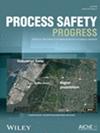支持高风险重大事故环境中的知识转让
IF 1
4区 工程技术
Q4 ENGINEERING, CHEMICAL
引用次数: 0
摘要
从事故中学习的一个关键因素是操作人员从历史事故中获得的知识的转移技能。这些事故可能包括在工厂内或工厂外类似公司发生的事故和险情。企业内部的知识转移可以通过一个合适的框架或模型来支持,让对事故教训感兴趣的各类人员都能轻松理解。目前所使用的一些知识转移模型的应用可能相当耗时,而且会让参与者感到不舒服。因此,本文旨在提出一种支持知识转移的简单模式。该模型是在广泛使用的 PDCA(计划-执行-检查-行动)框架基础上提出的。本文以捷克共和国发生的一起重大事故为例,对该模型的使用进行了演示。该模型不仅可用于从相关公司发生的重大事故中学习,还可用于从类似工厂过去发生的险情或事件中学习。因此,该模型特别有助于提高事故学习系统的效率。本文章由计算机程序翻译,如有差异,请以英文原文为准。
Supporting the transfer of knowledge in high-risk major accident environment
A key element in learning from accidents is the skill associated with the transfer of knowledge gained by the operator from historical incidents. These incidents can include accidents and near-misses that occurred on site or in similar companies outside the plant. Knowledge transfer within the enterprise can be supported by a suitable framework or model that is easily understood by a wide range of people who are interested in the lessons learned from accidents. The application of some of the knowledge transfer models used so far can be quite time consuming and uncomfortable for the participants. For this reason, this paper aims to propose a simple model designed to support knowledge transfer. This model is proposed based on the widely used PDCA (plan-do-check-act) framework. Its use is demonstrated by the case of a major accident that occurred in the Czech Republic. The model can be used not only for learning from major accidents that occur in the subject company but also for learning from near-misses or events that occurred in the past in similar plants. Thus, the model can easily help in increasing the efficiency of the accident-learning system in particular.
求助全文
通过发布文献求助,成功后即可免费获取论文全文。
去求助
来源期刊

Process Safety Progress
工程技术-工程:化工
CiteScore
2.20
自引率
10.00%
发文量
99
审稿时长
6-12 weeks
期刊介绍:
Process Safety Progress covers process safety for engineering professionals. It addresses such topics as incident investigations/case histories, hazardous chemicals management, hazardous leaks prevention, risk assessment, process hazards evaluation, industrial hygiene, fire and explosion analysis, preventive maintenance, vapor cloud dispersion, and regulatory compliance, training, education, and other areas in process safety and loss prevention, including emerging concerns like plant and/or process security. Papers from the annual Loss Prevention Symposium and other AIChE safety conferences are automatically considered for publication, but unsolicited papers, particularly those addressing process safety issues in emerging technologies and industries are encouraged and evaluated equally.
 求助内容:
求助内容: 应助结果提醒方式:
应助结果提醒方式:


